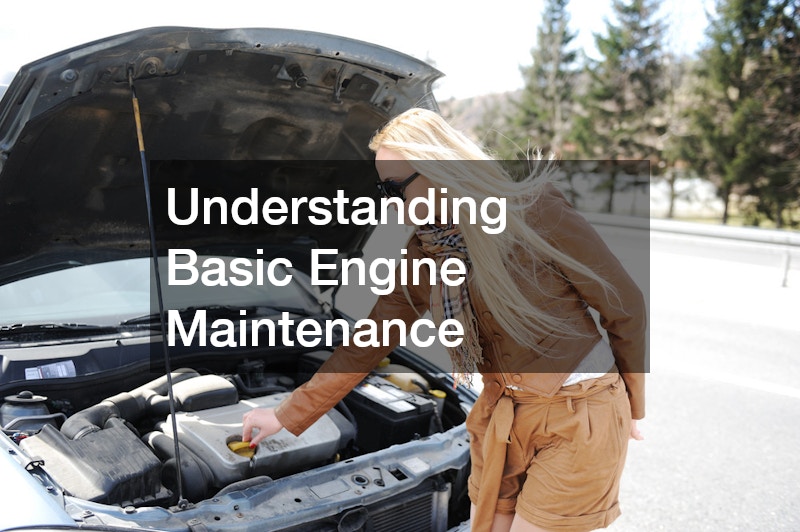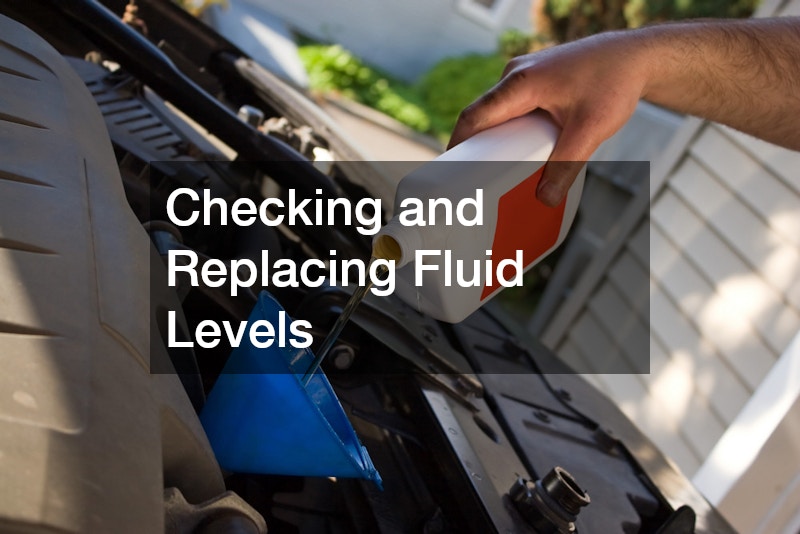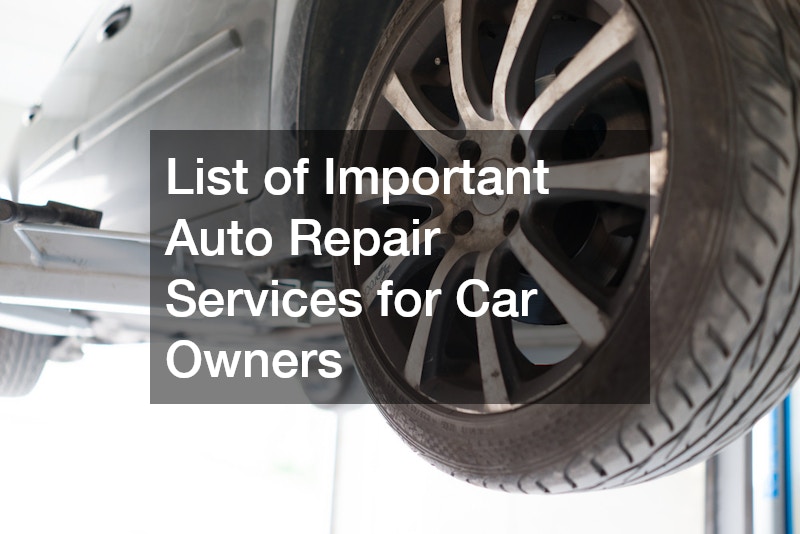Owning a car is undoubtedly convenient, but it comes with the responsibility of regular upkeep. Proper maintenance ensures your vehicle’s safety, reliability, and performance. A detailed auto maintenance checklist can provide peace of mind, covering everything from tyre pressure to engine health.
Whether you’re a novice driver or an experienced motorist, understanding these maintenance essentials will help you avoid costly repairs and unexpected breakdowns. This guide covers everything you need to know about keeping your car in top condition.
Understanding Basic Engine Maintenance

The engine is the heart of your car and should always be a top priority for any vehicle owner. Basic engine maintenance involves checking the oil level, monitoring coolant levels, and listening for unusual noises that may signal deeper issues. Performing these routine checks ensures your engine runs smoothly and efficiently, reducing the risk of overheating. Regular oil changes are crucial, but don’t overlook the importance of inspecting belts and rubber hoses for wear and tear. Neglecting your engine can lead to expensive repairs or even a complete breakdown.
Auto repair experts also recommend keeping an eye on your air filters and spark plugs. Spark plugs play a vital role in the combustion process, and a faulty one can cause misfires or poor performance. Air filters prevent dirt and debris from entering the engine, so replacing them when necessary boosts efficiency and prolongs engine life. Understanding these components not only empowers you to handle basic maintenance but also helps make your visits to a mechanic more productive.
Checking the Battery of Your Vehicle
The battery is an essential component of your car, powering the electrical systems and enabling the engine to start. Regularly inspect your battery for signs of corrosion, wear, or weakening to ensure reliable performance, especially during colder months or after periods of inactivity. Checking the battery terminals for corrosion or buildup can prevent poor connections that might result in sudden power failures. Keeping your battery in good condition isn’t just a matter of convenience—it can save you from being stranded.
Visiting an auto repair shop for a professional battery test or replacement, if needed, can help avoid unexpected issues. Mechanics have specialised tools to assess your battery’s charge and health, allowing you to determine whether it’s time for a replacement. Routine battery checks are especially important before long road trips or seasonal changes.
Maintaining Tyre Pressure and Alignment
Tyre pressure and alignment play a critical role in your vehicle’s safety, performance, and fuel efficiency. Proper tyre inflation ensures optimal traction, fuel economy, and a smoother driving experience. Regularly checking tyre pressure is essential, as underinflated or overinflated tyres can cause premature wear and negatively impact fuel efficiency. Similarly, incorrect alignment can lead to uneven tyre wear, making the car harder to control and more prone to accidents. To avoid these issues, include tyre pressure and alignment checks in your regular maintenance routine.
After significant events such as a minor accident or hitting a kerb, it’s wise to check tyre alignment. Misalignment not only affects your car’s handling but can also strain other components, such as the suspension. By maintaining proper tyre pressure and alignment, you’ll enjoy safer and more economical driving.
Ensuring Optimal Brake Performance
Brake maintenance is one of the most critical aspects of vehicle safety. Routine brake inspections can identify worn brake pads, low brake fluid levels, or damage to the rotors. Well-maintained brakes provide the stopping power needed to avoid accidents and ensure a smooth driving experience. Ignoring brake maintenance puts your safety at risk and can lead to costly repairs later on.
If you’ve recently had other car services done, such as having your vehicle professionally detailed, it’s a good idea to double-check the brakes. Handling the wheels during such services might inadvertently affect brake components. Regularly inspecting and replacing brake pads, checking brake lines for leaks, and topping up brake fluid ensures your vehicle remains safe under all driving conditions.
Checking and Replacing Fluid Levels

Monitoring your car’s fluid levels is vital for keeping it in top condition. Engine oil, transmission fluid, coolant, and windscreen washer fluid all play essential roles in your vehicle’s operation. Low or contaminated fluids can cause serious mechanical problems, such as engine overheating or transmission failure. Regularly checking and replacing these fluids helps prevent major issues and keeps your vehicle running smoothly.
After incidents such as a minor collision, it’s wise to check for fluid leaks or contamination. For example, coolant leaks can lead to engine overheating, while low transmission fluid can cause shifting problems. Addressing these issues promptly will save you from more expensive repairs down the track.
Inspecting and Replacing Filters
Filters are essential for maintaining your car’s performance and health. Regularly inspecting and replacing air, oil, and cabin filters should be part of your maintenance routine. Clogged air filters reduce engine efficiency and fuel economy, while dirty oil filters allow harmful particles to circulate, causing wear and tear. Neglecting cabin filters can also affect air quality inside your vehicle. By keeping all filters in good condition, you enhance your car’s performance and longevity.
When you have your car serviced for something like a custom paint job or detailing, take the opportunity to check your filters. For instance, the air filter near the engine might be easily accessible during such services, making it an ideal time for replacement.
Inspecting the Exhaust System
The exhaust system is often overlooked in routine maintenance, but it plays a crucial role in reducing harmful emissions and ensuring efficient engine performance. A damaged or leaking exhaust system can lead to increased fuel consumption, louder engine noise, and harmful emissions. Regularly inspect the exhaust system for rust, cracks, or leaks to ensure it functions properly.
If your car has been parked for extended periods, particularly in a garage with high moisture levels, inspect the exhaust system for rust or corrosion. Maintaining the exhaust system not only enhances your car’s efficiency but also helps protect the environment.
Checking Lights and Electrical Systems
Functional lights and electrical systems are essential for safety and convenience. Headlights, brake lights, turn signals, and interior lights improve visibility and communication with other drivers, especially during nighttime or adverse weather. Additionally, your car’s electrical system powers features like the radio, air conditioning, and power windows, which contribute to comfort and convenience.
If you’ve recently had modifications made, such as a tow bar installation, it’s worth checking your car’s electrical systems to ensure everything functions correctly. Regular maintenance of lights and electrical components ensures your car remains safe and reliable.
Maintaining the Cooling System
A properly functioning cooling system prevents your engine from overheating. Coolant circulates through the radiator and engine to regulate temperature, but it can degrade over time or leak, leading to inefficient cooling. Regularly checking coolant levels and inspecting the cooling system for leaks or blockages is essential to avoid engine damage.
If you’ve used your car for towing or driven long distances in extreme conditions, it’s particularly important to inspect the cooling system. Ensuring your cooling system is in good condition will save you from costly repairs and keep your engine running efficiently.
Keeping Suspension and Steering in Check
The suspension and steering systems are vital for a comfortable and controlled driving experience. Suspension components like shocks and struts absorb road impacts, while the steering system ensures precise manoeuvrability. Worn or misaligned components can lead to poor handling, uneven tyre wear, and safety hazards. Regular inspections and maintenance of these systems are crucial for optimal performance.
If you’ve recently installed aftermarket accessories, such as a roof rack, it’s worth rechecking the suspension and steering to ensure they’re not adversely affected. Proper maintenance of these systems contributes to a smoother and safer ride.
Maintaining a Comprehensive Approach
By following this comprehensive auto repair checklist, you can stay on top of your car’s critical maintenance needs. Regular inspections and servicing ensure your vehicle performs at its best avoids costly repairs and keeps you safe on the road. From basic engine maintenance to ensuring your cooling system, brakes, and suspension are in excellent condition, these steps will help extend your car’s lifespan and enhance your driving experience.
